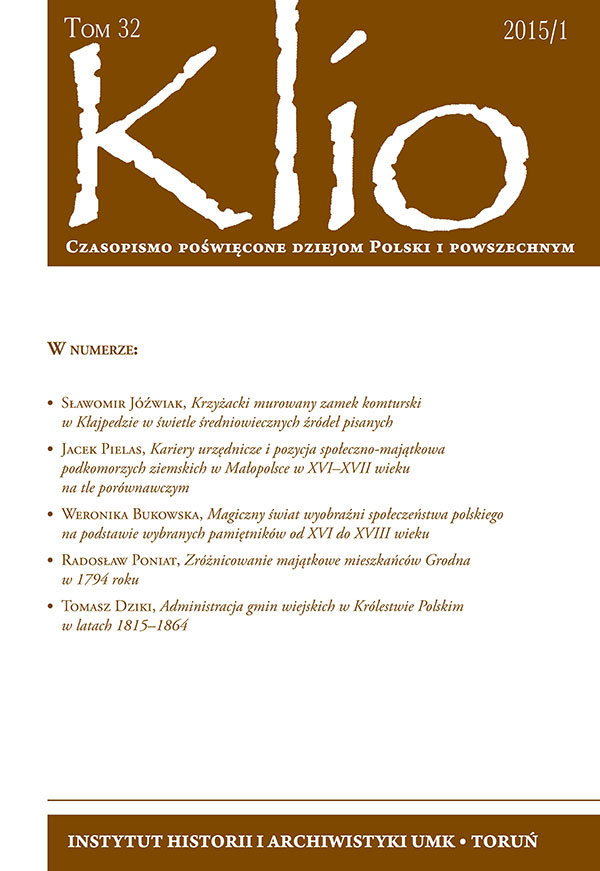Administracja gmin wiejskich w Królestwie Polskim w latach 1815–1864
DOI:
https://doi.org/10.12775/KLIO.2015.005Abstrakt
W Królestwie Polskim utrzymano istnienie gminy wiejskiej utworzonej w Księstwie Warszawskim, z tą różnicą, że na początku całkowicie zrezygnowano z wprowadzenia elementów samorządu gminnego. Nie opracowano stabilnego podziału kraju na gminy. Urząd wójta powiązano z dominium, właściciel ziemski obligatoryjnie był
wójtem, ale mógł wyznaczyć zastępcę, który w jego imieniu wykonywał te obowiązki. Przez dziesięciolecia istnienia Królestwa liczba i wielkość gmin notorycznie się zmieniały.
Reformy, do których doszło w tym zakresie w 1859, a szczególnie w 1864 roku, wymuszone zostały m.in. przez przemiany cywilizacyjne, rozwój biurokracji oraz politykę. Ostatecznie dopiero w 1859 roku rozpoczęto proces ograniczania rozdrobnienia wsi na małe gminy, a w 1864 roku głęboko zreformowano wieś Królestwa, wprowadzono samorząd wiejski, który był jedynym samorządem terenowym w Królestwie Polskim do końca jego istnienia.
Pobrania
Opublikowane
Jak cytować
Numer
Dział
Statystyki
Liczba wyświetleń i pobrań: 4288
Liczba cytowań: 0



